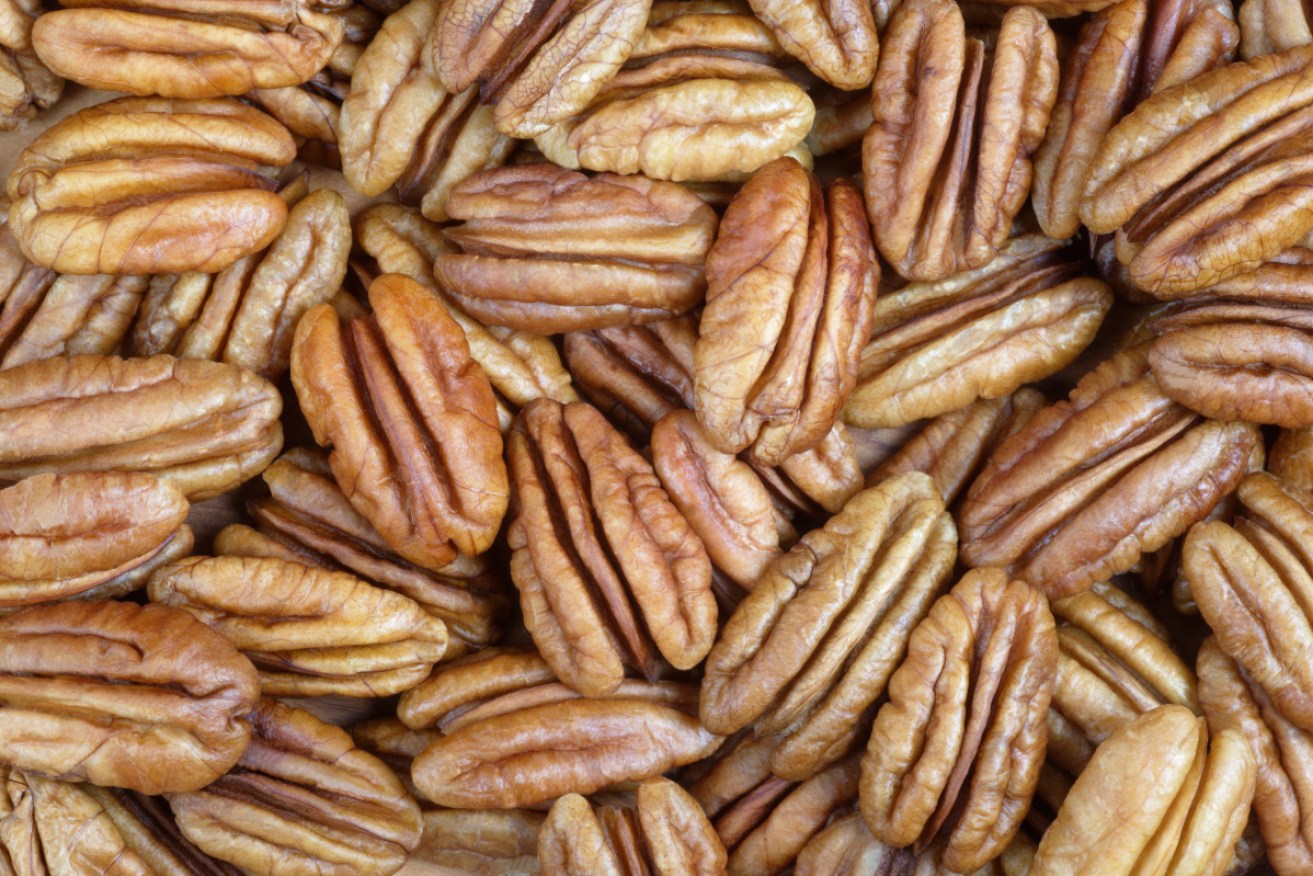Eating pecan nuts ‘significantly improves’ cholesterol levels


Pecan consumption was linked to a 9 per cent drop in LDL or 'bad cholesterol'. Photo: Getty
Walnuts and almonds tend to get all the attention when we talk about nuts that are good for your heart.
It’s true. They’re great. But maybe you don’t like them. Or you’re sick of them.
How about a handful of pecans instead? These are the nuts that you combine with eggs, butter and a lot of sugar to make into a pie that is deadly genius at clogging your arteries.
New evidence suggests that pecans – on their own, without the confectionery – should be considered as an intervention for people at risk of cardiovascular disease.
So, is this the beginning of pecans becoming a star health food and not just an also-ran?
The nut that slipped through the cracks
Typical is a 2013 study that found that people who eat nuts – “particularly walnuts” – more than three times a week were more likely to live longer.
In this longitudinal study, the researchers concluded that nut eaters have a lower risk of dying from cancer or cardiovascular disease than non-nut eaters.
A 2016 online health report, from a medical doctor, celebrated almonds for reducing cholesterol and body fat … meaning a smaller waistline. Pistachios were said to ease blood pressure when the body was under stress.
And walnuts were rightly lauded as the heart’s best friend, because they are the only nuts that contain alpha-Linoleic acid – an anti-inflammatory agent that has been shown to help reduce plaque buildup in coronary arteries.
The author then apologised to pecans, hazelnuts and macadamia nuts, because they “have also shown some benefits in reducing heart disease factors, but they don’t have the data of the nuts listed above”.
Pecans take the spotlight in new study
In a new study, University of Georgia (UGA) researchers have shown that pecans can “dramatically improve” a person’s cholesterol level.
Further, they conclude that eating pecans may be a more sustainable way of keeping unhealthy fats at bay, when compared with “many other lifestyle interventions”.
These included 51 exercise plans designed to lower cholesterol.
“This dietary intervention, when put in the context of different intervention studies, was extremely successful,” said Dr Jamie Cooper, a professor in the UGA College of Family and Consumer Sciences and one of the study’s authors.
How did the study work
According to a statement from UGA:
Researchers assigned 52 adults between the ages of 30 and 75 who were at higher risk for cardiovascular disease to one of three groups.
One group consumed 68 grams or about 470 calories of pecans a day as part of their regular diet; a second group substituted pecans for a similar amount of calories from their habitual diet, and a control group did not consume pecans.
At eight weeks, participants consumed a high-fat meal to determine changes in blood lipids and the amount of glucose, or sugar, in the blood.
Fasted blood lipids showed similar improvements among the two pecan groups. Curiously, post-meal triglycerides (fats in the blood made from unused calories) were reduced in the group that added pecans. Post-meal glucose was lowered in the group that substituted pecans.
“Whether people added them or substituted other foods in the diet for them, we still saw improvements and pretty similar responses in total cholesterol and LDL cholesterol in particular,” Dr Cooper said.
“We had some people who actually went from having high cholesterol at the start of the study to no longer being in that category after the intervention.”
What were the numbers?
Participants who ate pecans showed significant improvements in total cholesterol, triglycerides and low-density lipoprotein (LDL), better known as ‘bad’ cholesterol.
The researchers saw an average drop of 5 per cent in total cholesterol and between 6 per cent and 9 per cent in LDL among participants who consumed pecans.
This was a larger improvement than seen after some exercise interventions.
A previous meta-analysis of 51 exercise programs designed to lower cholesterol found they delivered an average reduction of 1 per cent in total cholesterol and 5 per cent in LDL.
Dr Cooper said: “Some research shows that even a 1 per cent reduction in LDL is associated with a small reduction of coronary artery disease risk, so these reductions are definitely clinically meaningful.”
Georgia is the leading pecan-producing state in the US.








